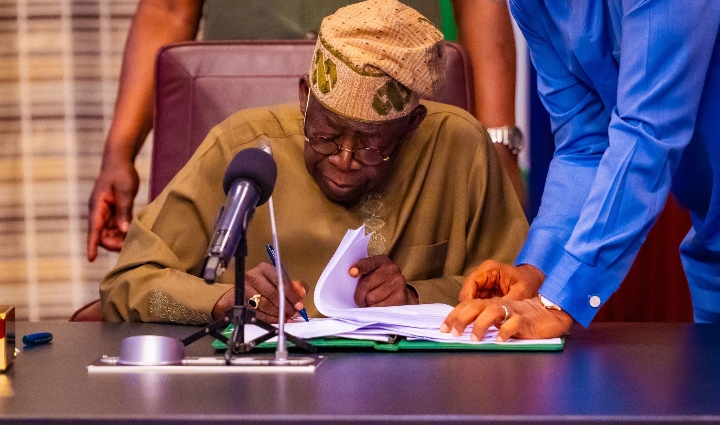By Prince Omokhodion Okojie
Introduction: Speaking Truth Without Fear or Favour
Let me begin with a clear disclaimer: I do not write as a politician, nor as a member of any party machinery. My loyalty is neither to the ruling party nor to the opposition. My only allegiance is to the truth—and to the millions of Nigerians bearing the weight of today’s economic realities.
This is not an attack piece. Neither is it an endorsement. It is an honest, unapologetic look at where Nigeria stands under President Bola Ahmed Tinubu’s administration—a year plus into its life.
Yes, some bold steps were taken. But here’s the bitter truth: those steps have not translated into real relief for Nigerians because this government has failed to reform itself.
The “Brave” Reforms—And the Pain that Followed
On day one, the President announced: “Fuel subsidy is gone.” Soon after, the exchange rate was unified. These were long overdue reforms, no doubt. Past administrations tiptoed around them because of their political cost.
In principle, removing subsidy and liberalizing FX are sound economic steps. They save the government trillions, close corruption loopholes, and restore some transparency. These moves earned Tinubu applause from international institutions and financial analysts.
But applause from Washington and Davos means nothing when the average Nigerian cannot afford a bag of rice or a bus fare.
Reality Check: Life Is Harder Than Ever
Let’s not sugarcoat it—inflation is out of control. Official figures hover around 30%, but on the street, the impact feels worse. Food prices have doubled or tripled. Transport fares have skyrocketed. Energy costs keep biting.
The removal of subsidy and FX reform may have been necessary—but what safety nets were put in place? Where was the cushioning for ordinary Nigerians?
Government rolled out palliatives and cash transfers—but in a country where leakages and inefficiencies are chronic, those interventions were a drop in the ocean compared to the tidal wave of hardship.
The Elephant in the Room: Government Refuses to Reform Itself
Here’s where the real anger comes from—and rightly so:
How do you ask 200 million Nigerians to tighten their belts while government refuses to loosen its own?
Billions are being spent on renovating the International Conference Centre, on luxurious lounges for the Vice President, and even on building new houses for judges.
Lawmakers drive new luxury SUVs while citizens trek to work.
Wasteful budget lines continue—frivolous travels, bloated delegations, and non-essential projects.
This is why Nigerians are not buying the “short-term pain for long-term gain” narrative. There is no moral authority to demand sacrifice from the people when leaders refuse to lead by example.
Misplaced Priorities: The Case of the Coastal Highway
One glaring example: the Lagos-Calabar Coastal Road. Yes, infrastructure matters. But should a multitrillion-naira highway take priority in a season of hunger?
Millions are choosing between food and transport. Hospitals lack basic drugs. Schools are collapsing. Farmers can’t access their fields because of insecurity. Yet, billions are poured into a prestige project that could have waited.
This is not vision—it’s vanity. And it reeks of disconnect from the pain of ordinary Nigerians.
Where Are the Subsidy Savings?
We were told subsidy removal would free up trillions for development. Fair enough. But today, where is the evidence?
If the government saved billions of dollars, why are we still borrowing aggressively? Why are critical sectors like health and education gasping for air?
This is why transparency matters. Nigerians deserve a full, audited breakdown of how subsidy savings are being used. Until then, suspicion will linger that these funds are being plundered—not prudently invested.
The Corruption Question
Corruption remains the cancer eating Nigeria alive. And frankly, Nigerians are not seeing the bold anti-corruption stance they expected.
Contracts are inflated. Projects are padded. Leakages remain. Political patronage thrives. If this administration truly wants to rescue Nigeria, plugging waste and punishing corruption must become a national obsession—not a campaign slogan.
Because without integrity, reforms are just another scam.
The Leadership We Need—but Don’t Have Yet
Nigeria does not lack resources. We lack serious-minded leadership with vision, discipline, and courage to make sacrifices where it matters most.
Until we have a leader who:
Cuts cost of governance to the bone.
Redirects every naira to essentials like food security, healthcare, and education.
Tackles insecurity in agricultural zones so farmers can farm.
Makes corruption a high-risk, zero-tolerance crime.
…we will keep spinning in circles—no matter how many reforms we announce.
Final Word: This Is About Nigeria, Not Politics
I repeat: I write not to score political points but to sound an alarm. Because at this rate, if you give this government 20 years without a change in mindset, nothing fundamental will change.
Nigeria’s future depends on leadership that understands one thing: governance is not a self-enrichment scheme. It is a sacred trust.
Until then, Nigerians will keep asking:
“Where is the hope you promised?”
And that, my friends, is the question this administration must answer—not in speeches, but in action.



